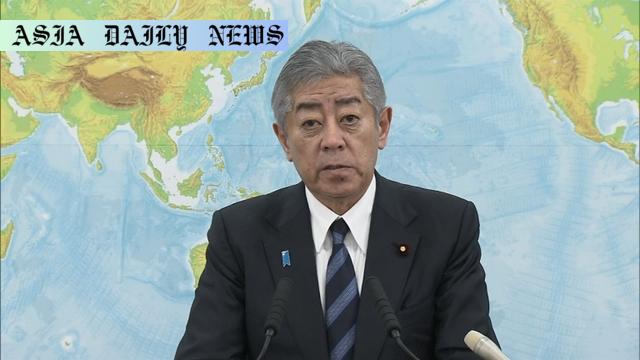Middle East Stability – Japan continues its active diplomatic efforts, aiming to de-escalate tensions and promote peace in the region.
Japan emphasizes the importance of peace and stability in the Middle East.
Japan supports de-escalation and re-opening dialogue between the US and Iran.
The country opposes nuclear weapon acquisition by Iran and is cooperating with international partners.
Japan acknowledges the US’s recent actions as efforts to prevent escalation.

Introduction: Japan’s Role in Middle East Stability
Japan’s dedication to promoting peace and stability in the Middle East is underscored by its recent diplomatic moves encouraging dialogue between the United States and Iran. Following US strikes on Iran’s nuclear sites, Japanese Foreign Minister Iwaya Takeshi issued a statement expressing strong support for de-escalation and peaceful resolution of ongoing tensions. Japan remains steadfast in its commitment to international efforts that prevent Iran from acquiring nuclear weapons.
Japan’s Concern Over Iran’s Nuclear Advancements
Diplomatic tension surrounding Iran’s nuclear developments has been a critical international issue. Japan, rooted in its global anti-nuclear stance, has consistently demonstrated concern about the prospect of nuclear weapon proliferation in Iran. Foreign Minister Iwaya Takeshi emphasized that preventing Iran’s acquisition of nuclear weapons is essential to maintaining the international nuclear non-proliferation regime. Japan’s position aligns with its broader commitment to preserving global security and peace.
The Strategic Importance of the Middle East to Japan
The Middle East holds strategic importance for Japan, given its position as a major source of energy imports, including oil and gas. Peace and stability in the region directly impact Japan’s energy security and economic well-being. Acknowledging the geopolitical complexities in the region, Japan aims to act as a neutral mediator capable of encouraging cooperation between key international players.
Japan’s Call for Dialogue Between the US and Iran
Amid rising tensions, Japan sees re-opening dialogue between the United States and Iran as a crucial step toward de-escalation. Foreign Minister Iwaya Takeshi underscored Japan’s understanding of US actions as efforts to prevent nuclear acquisition while emphasizing the need for peace. Japan’s diplomatic channels remain actively engaged in fostering communication and collaboration among global partners.
Collaborative Global Efforts for Peace
Japan’s stance reflects a robust commitment to multilateral approaches in resolving international disputes. By aligning with allies such as the US and the broader international community, Japan strengthens global efforts aimed at bringing long-term stability to the tumultuous Middle East region. Iwaya Takeshi reaffirmed that Japan will dedicate necessary diplomatic resources to achieving these goals in collaboration with the international community.
Conclusion: Japan’s Vision for a Stable Future
Japan’s proactive diplomatic efforts reflect its commitment to global peace and stability. By addressing critical issues such as nuclear weapon proliferation and fostering dialogue, Japan plays an essential role in reducing tensions in the Middle East. Its actions serve as a model for cooperative international problem-solving, emphasizing the need for persistent efforts and unified global partnerships. Looking ahead, Japan remains resolute in its mission to ensure that peace prevails in this geopolitically sensitive region.



Commentary
Japan’s Commitment to Peace
Japan’s dedication to fostering peace and stability in the Middle East showcases its role as a responsible global power. The Middle East’s complex geopolitical dynamics require nuanced diplomacy, and Japan has positioned itself as an advocate for de-escalation, dialogue, and collaboration. Minister Iwaya Takeshi’s statement underscores Japan’s proactive stance, highlighting its willingness to engage diplomatically and work alongside the international community.
Understanding the Significance of Dialogue
Dialogue between the United States and Iran remains a cornerstone of resolving tensions in the Middle East. Japan’s call to reopen channels of communication is a sensible approach to addressing the sensitive issues at hand. By encouraging open dialogue, Japan seeks to provide a foundation for long-term peace and stability while ensuring that global agreements on nuclear weapons are upheld. This initiative aligns with Japan’s anti-nuclear proliferation policies and its vision for a safer world.
Global Implications of Regional Stability
The Middle East’s stability has far-reaching implications, not just for regional security but also for the global economy. Japan’s reliance on oil and gas imports from the Middle East makes its involvement in the region crucial from both geopolitical and economic perspectives. By emphasizing de-escalation and dialogue, Japan aims to mitigate potential risks that could disrupt global energy markets and economic stability.
The Path Forward: Collaborative Diplomacy
As tensions persist, the importance of collaborative diplomacy cannot be overstated. Japan’s leadership in promoting peace and stability highlights a path forward for the international community—one rooted in dialogue, cooperation, and mutual respect. By working closely with allies and leveraging its neutral stance, Japan sets an example of how nations can contribute constructively to global conflicts.